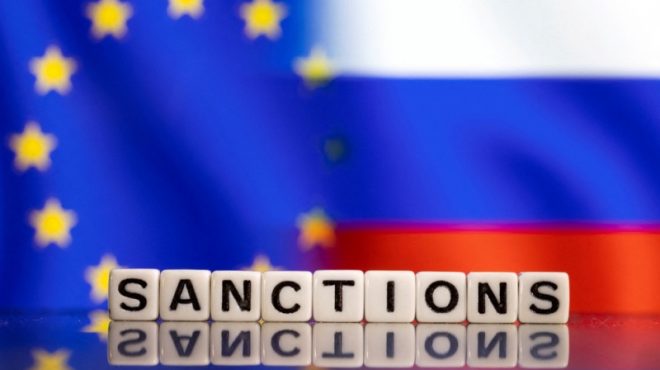Russian President Vladimir Putin has signed a decree on retaliatory economic sanctions in response to the “unfriendly actions of certain foreign states and international organisations”.
According to the decree, Russia will forbid the export of products and raw materials to people and entities that it has sanctioned.
The decree also prohibits transactions with foreign individuals and companies hit by Russia’s retaliatory sanctions and permits Russian counterparties not to fulfill obligations towards them, the Kremlin said.
The decree came after the European Union called on its members not to comply with Russia’s demand that imports be paid in roubles, asking them to brace for a complete breakdown in Russian gas supplies.
Moscow last month gave an ultimatum to its energy clients from “unfriendly countries”, including EU member states, to pay for gas in roubles, as a way to compensate for Western financial sanctions against the country’s central bank.
The EU’s top diplomat Josep Borrell said the sixth package of sanctions will target several banks including the country’s largest bank, Sberbank, which will be excluded from the global SWIFT network.
Germany, as Russia’s biggest energy customer, presented a new shift in its policy, saying that it will back an immediate EU embargo on Russian oil.
In an interview with ZDF public television, Chancellor Olaf Scholz pledged that sanctions will not be lifted until Putin signs a peace deal with Ukraine that Kiev can support.
US-based leading energy research institute EWI warned that Germany should already limit gas use to prepare for the possibility of a future cut-off of Russian gas in retaliation for Western sanctions.
German utility Uniper, a major Russian gas customer, warned that an EU embargo on Russian oil could prompt Russia to halt westward gas flows.
On Monday, data from a transmission system operator in Slovakia showed that daily requests for Russian gas deliveries to Europe through Ukraine had hit a 5-month high despite tensions over the war in Ukraine.
According to new figures, flows of Russian gas to Germany through the Nord Stream 1 pipeline across the Baltic Sea showed a sharp rise as well.
Russian gas giant Gazprom shut off natural-gas supplies to Poland and Bulgaria last week after the two countries rejected Russia’s proposal to pay gas in roubles.
BP plunges into $20 billion loss
British energy giant BP said Tuesday its decision to pull out of Russia pushed it deep into the red in the first three months of this year during which it posted net loss of $20.4 billion compared with a bottom-line profit of $4.7 billion a year earlier.
The huge loss was attributable to the group’s decision in February to pull its 19.75-percent stake in energy group Rosneft, ending more than three decades of investment in Russia, BP said.
BP said the charges connected to the break with Rosneft amounted to $25.5 billion before tax.
The UK government said it is set to grant another 300 million pounds in military aid to Ukraine. It will include electronic warfare equipment, a counter-battery radar system, GPS jamming equipment, and thousands of night vision devices.
The UK will also supply heavy lift unmanned aerial vehicle (UAV) systems “to provide logistical support to isolated forces”, according to Downing Street.
Moscow has repeatedly warned against Western direct intervention in the Ukraine conflict and against supplying arms to the country, saying it will risk escalation of tensions.
 Alghadeer TV Alghadeer TV
Alghadeer TV Alghadeer TV

